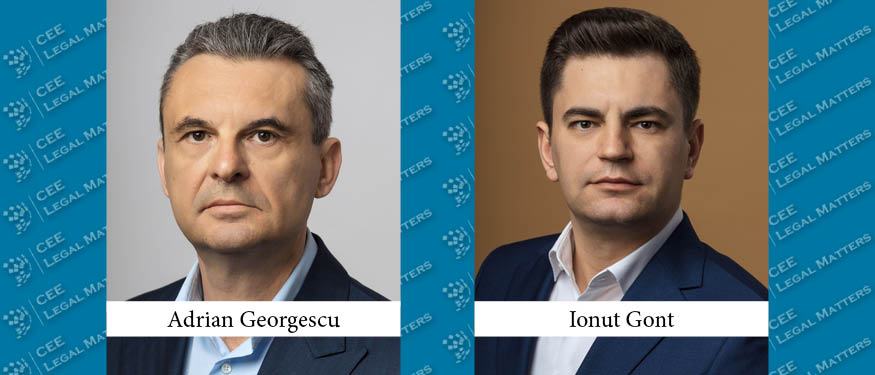From staying loyal to specific lawyers irrespective of the brand they work under to focusing on fixed fees, Selvita General Counsel and Executive Management Board Member Dawid Radziszewski shares his best practices in terms of working with external counsel.
Picking and Working with the Right Firefighter: An Interview with Tamara Mohoric Selak of Zito
From relying on chemistry to counting on reputation being representative, Zito Director of Legal Affairs and General Services Tamara Mohoric Selak talks about how she picks her external “firefighters” and how she nurtures long-term collaborations with them.
The Right Pick: An Interview with Elena Bosnidou of INSS
INSS Legal Director Elena Bosnidou shares her tips and tricks on selecting and instructing external counsel.
Mastering the Game: Best Practices for Working with External Counsel
Bringing in external counsel can flip legal headaches into big wins, protecting your interests and pushing your goals forward. But how do you make sure your partnership with legal experts goes beyond just getting the job done? The magic happens when you master working with external counsel – mixing careful planning with lively communication to reach new heights of legal success.
Flexibility in Running a Global Team: An Interview with Yota Kremmida of Hewlett Packard Enterprise
Hewlett Packard Enterprise Director & Associate General Counsel Yota Kremmida shares her strategies for effectively managing a diverse, geographically dispersed team through remote work.
Working as One Group: an Interview with Andras Nemeth of Audax Renewables
Audax Renewables Head of Legal in Hungary Andras Nemeth talks about managing and working as a part of an international team.
Lessons from My Legal Expat Adventure
I have always been passionate about learning languages, traveling, and getting to know people from different cultures. While studying in law school in my hometown Warsaw, Poland, I applied for the Erasmus Student Exchange scholarship. I went to Stockholm, Sweden, to study law for one year. This year turned into more than a decade, during which I earned an LL.M. in IP law and worked as in-house legal counsel and as Head of Legal for Swedish IT/SaaS companies with global operations. Now I am back in Warsaw, but I am still working internationally.
Keep in Touch: An Interview with Lucie Kubenova of Pfizer
Pfizer Eastern Europe Cluster Legal Lead and Legal Director Lucie Kubenova talks about the importance of staying connected with colleagues when managing a legal team spread across 22 countries CEE.
Managing Multinational Legal Teams: A GC Summit Summary
Navigating the complexities of managing multinational legal teams requires a blend of strategic foresight, robust communication skills, and a profound understanding of diverse legal frameworks. Drawing on over two decades of experience, former Paysafe Associate General Counsel Christopher Fischer shared during the 2024 CEE General Counsel Summit his strategies for aligning diverse teams toward a unified goal, emphasizing the necessity of effective leadership in the globalized legal environment of the time.
Work-From-Home and Its Pitfalls
Before COVID-19, the home office was not mainstream. It was used more as a benefit to avoid the need to get a day off when you had to stay home to wait for “the guy to get the annual meter reading.” Then came the pandemic which forced us to think outside of the box. Suddenly, everyone discovered that remote work could be a viable alternative. Organizations had to come up with technical solutions to make sure that every possible task could be done remotely. The legal profession by its nature was able to adapt quickly to remote work.
Reflecting on Remote Work from a Greek Island
For much of the pandemic, remote working became part of everyday life for most of us. For some of us, it still is. Upstream – the company I work for – chose to keep a hybrid model. Even in a hybrid system, the idea is to offer flexibility, so I find myself now writing this piece in a village atop a Greek island. Is it that all I need to do my work are my laptop and a good internet connection? These are obviously the basics but there are other steps to make remote working really work.
Building an In-house Counsel Career: An Interview with Selin Pattni of Henkel
Selin (Evrem) Pattni is the Head of Legal Global Purchasing and Supply Chain Operations of Henkel, and she is also on the Executive Committee of Henkel Global Supply Chain B.V. located in Amsterdam, the Netherlands. Selin reflects on her own career path and on strategies for training and developing her in-house team.
The Importance of Cross-Disciplinary Skills in Modern Legal Practices: A GC Summit Summary
More and more legal departments are actively integrating methodologies from disciplines outside the traditional legal sphere, such as project management and even engineering. This evolution is reshaping how legal teams deliver value, emphasizing both strategic impact and operational efficiency. Precision Medicine Group Deputy General Counsel Krzysztof Mazurek, Alpekr Managing Director Petr Zatopek, and Audax Head of Legal Andras Nemeth took a look at the vital role of cross-disciplinary skills in modern legal at the CEE Legal Matters GC Summit, held in Warsaw on April 25-26, 2024.
Is Sectoral Knowledge a Must? An Interview with Marton Hidvegi of METCE Hungary
Focusing on hiring the right skills and looking to build sectoral knowledge in-house, METCE Hungary General Counsel Marton Hidvegi talks about how his organization addresses the training and development of the in-house legal team.
The Right Skills for the Job: An Interview with Clementina Canel of FEPRA EPR
FEPRA EPR Head of Legal and Compliance in Romania Clementina Canel talks about the skills she focuses on developing within her in-house legal team and the strategies she uses toward that.
Must-Have Skills to Manage an In-House Legal Team
In order for us to talk about the best practices in managing a legal team in a company, we must, first of all, realize that such a team is not only composed of good lawyers but represents a well-functioning hybrid. Why a hybrid? Because this team must provide both substantive assistance and act as an entity that perfectly understands and senses business needs.
Breaking Barriers: The Power of Cross-Functional Training in Aligning Legal and Scientific Teams
In today’s rapidly evolving business and legal landscape, the importance of collaboration and knowledge exchange between departments has never been more apparent. While traditionally separated by distinct roles and expertise, the integration of legal and scientific teams through cross-functional training has shown to be a transformative approach that drives innovation, fosters collaboration, and ultimately supports overarching business goals.
Facing and Overcoming Challenges Together with the Business
Shortly after the early years of my career, I moved from the attorneys’ world (more precisely, clerks’) into the world of corporate lawyers. The difference between the two became apparent early on. At least for me, the big difference was that, while working as an attorney, I was in contact with the client only in bursts. As an in-house legal counsel, there is essentially a continuous relationship between lawyers and business colleagues. This continuous relationship results in a kind of interdependence – working together both in good and bad times, celebrating joint successes but also facing challenges together.
































